Our research team is dedicated to exploring alternative proteins with a specific focus on algal proteins to create innovative and sustainable food sources. Our project aims to obtain (chromo)peptides from algal proteins, serving as a viable replacement for Fetal Bovine Serum (FBS) components, used as media supplementation in production of cultivated meat. By incorporating these peptides into our cultivation process, we strive to develop a more sustainable medium for cultured meat production. This initiative reflects our commitment to advancing environmentally friendly and cost-effective solutions in the field of alternative protein research.
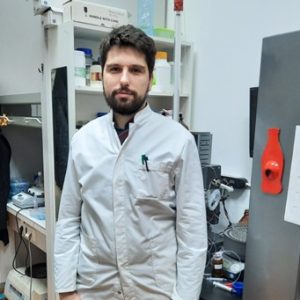
Dr Simeon Minić is the Principal Investigator on the Pep4Meat project.
He is the assistant professor and senior research associate at the University of Belgrade – Faculty of Chemistry. Simeon graduated in Biochemistry from the Faculty of Chemistry and obtained a PhD in Biochemistry in 2017. During 2018-2021, he was a postdoctoral fellow at the Laboratoire Léon Brillouin, National Center for Scientific Research (CNRS) in France. During his postdoctoral studies, Simeon was the guest researcher at the National Institute of Standards and Technology (Maryland, USA). His main research interests are characterising protein-ligand interactions in food systems, unfolding proteins by high pressure (HP), and bioactive (chromo)peptides. Recently, his research is focussed on developing algal-based serum-free cell media for sustainable meat cultivation.
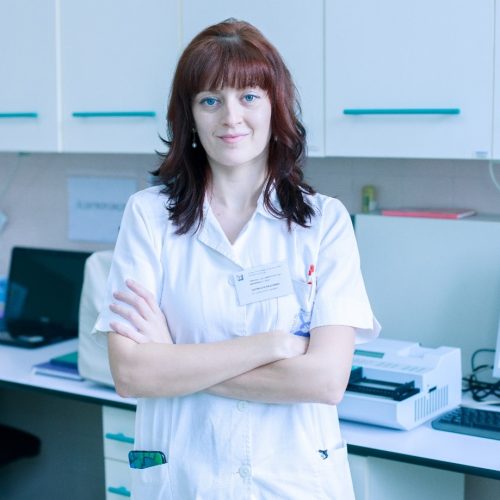
Marijana has a PhD in Molecular Oncology from the Faculty of Biology, University of Belgrade, where she studied the antitumor potential and molecular mechanisms of action of ruthenium(II)-arene complexes with different types of bioactive ligands (such as specific enzyme inhibitors) in vitro. For her postdoctoral training, Marijana studied the antimetastatic effects of imidazoline receptor agonists in pancreatic cancer (Project REPANCAN, PROMIS call, Science Fund of the Republic of Serbia), and in recognition of a meritorious results she received the prestigious Global Scholar-in-Training Award offered by American Association for Cancer Research. During her work at IORS, Marijana gained an extensive experience in mammalian cell culture and cell-based assays, and on the Pep4Meat project she will provide significant research support.
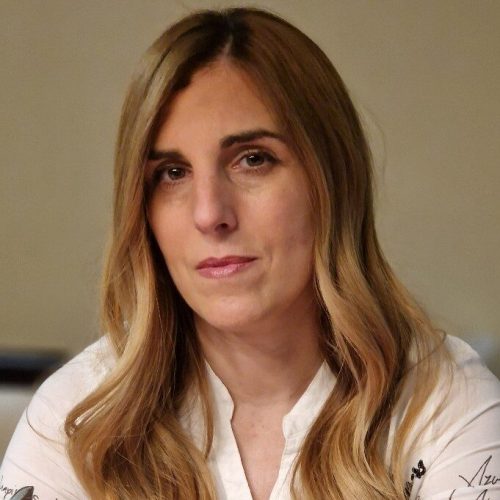
Milica has a PhD in Chemistry from the Faculty of Chemistry, University of Belgrade, where she studied the interactions between small molecules and proteins and the stability of protein-ligand complexes under the supervision of Dr Cirkovic Velickovic and Dr Milcic. Her scientific and research activities include research in the field of computational chemistry. Research in these areas focuses on molecular dynamics studies, molecular docking and the application of statistical analysis of data obtained from crystal structures in combination with quantum mechanical calculations.
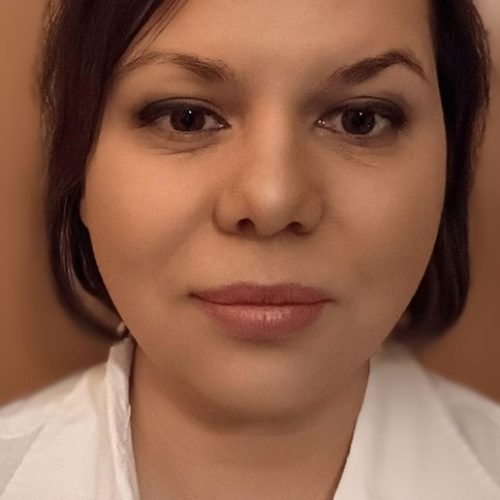
Nađa has a PhD in Biology from School of Biology, University of Belgrade. For her thesis she studied biological responses of selected cell types to the activity of Fucus algae extracts. Her work included multidisciplinary analysis of the chemical composition and in vitro anticancer, antimicrobial, antioxidative and antidiabetic activities of extracts and fractions of the Fucus algae. She published 23 international papers. She joined team Pep4Meat as an experienced researcher skilled in in vitro cell biology assays, flow cytometry, ELISA, microscopy and cancer research. She will be focused on experiments on animal cell cultures and influence of algal-derived (chromo)peptides on them, as a serum replacement components, that could be used for meat cultivation.
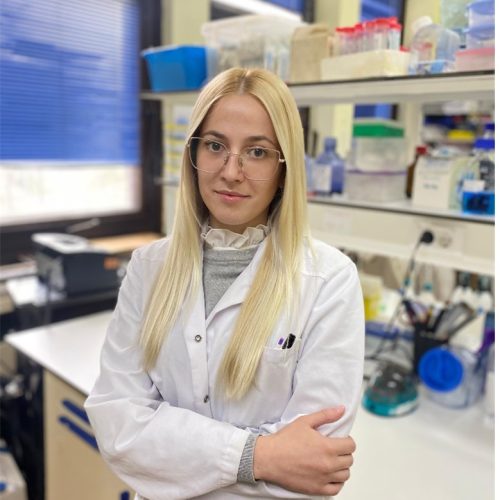
Nikolina holds a Master’s degree in Chemistry from Saint Petersburg State University. During that time she studied and developed a novel method for quantifying the inhibitory activity of
low-molecular-weight carbonic anhydrase IX inhibitors, which simplifies the selection of potent sulfonamide inhibitors for in vivo studies of their potential anticancer activity. She is currently a PhD candidate in the Biochemistry program at the Faculty of Chemistry, University of Belgrade. Her doctoral research is centered on the exploration of algal and insect hydrolysates as economically viable alternatives to expensive serum substitutes in cell cultivation, while concurrently examining their potential allergenic properties.
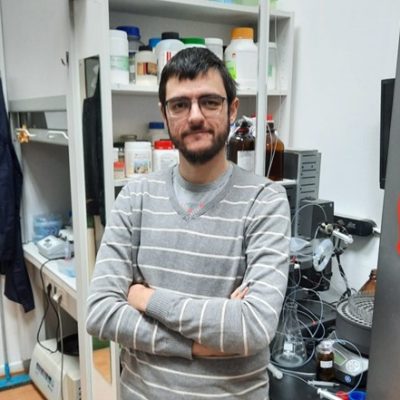
Nikola has a PhD from University of Belgrade – Faculty of Chemistry. His PhD was done under the mentorship of Dr Oglica Nedić from the University of Belgrade – Institute for the Application of Nuclear Energy, where he studied chemical and structural alterations of human fibrinogen under different pathophysiological conditions, and its interactions with IGFBP-1 protein. He was a visiting scholar at the Institute of Chemistry of Slovak Academy of Sciences (laboratory of Dr Jaroslav Katrlík) and University of Ghent – Faculty of Bioscience Engineering (laboratory of Dr Andreja Rajković). Now at the Institute of Chemistry, Technology and Metallurgy he is involved in several projects regarding both stabilisation and immobilisation of phycobiliproteins and the impact of microplastics on protein structure and function.
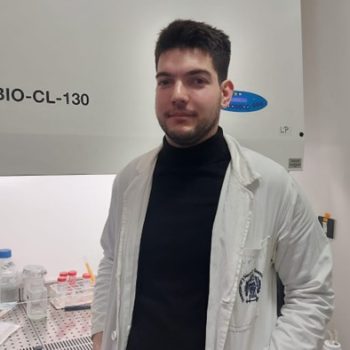
Luka Veličković is a PhD candidate in the Biochemistry program at the Faculty of Chemistry, University of Belgrade, his PhD is centered on the exploration of algal extracts as economically viable alternatives to expensive serum substitutes in cell cultivation His BSc and MSc thesis topics were stabilising the algal phycobiliproteins by binding small, food-derived molecules. Currently, he is one of the participants in the international project ALG2MEAT where he works on the purification of phycobiliproteins and performing cell-based assays. He has recently published (as the first author) the study on the stabilization of R-phycocyanin through encapsulation in alginate hydrogels in the Food Chemistry journal.